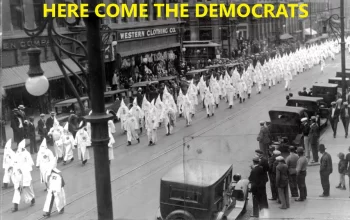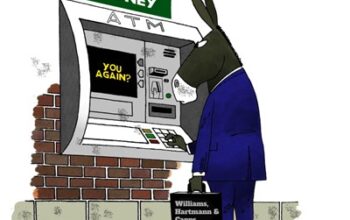So far 22 drug stores have closed in San Fran. Thousands of jobs have been lost. Watch as retailers and others close, joining the restaurants that are not re-opening. San Fran is collapsing—mostly because it is a town without law, law enforcement or a justice system—it is the Wild West.
“According to Walgreens, theft levels in the city went up to 5 times the national average for the store while security measures went up by 46 times the chain average to maintain security for both the store and shoppers.
“Organized retail crime continues to be a challenge facing retailers across San Francisco, and we are not immune to that,” Walgreens spokesperson Phil Caruso said on Tuesday. “Retail theft across our San Francisco stores has continued to increase in the past few months to five times our chain average. During this time to help combat this issue, we increased our investments in security measures in stores across the city to 46 times our chain average in an effort to provide a safe environment.”
“Due to ongoing organized retail crime, we have made the difficult decision to close five stores across San Francisco. Each store will transfer prescriptions to a nearby Walgreens location within a mile radius and we expect to place the stores’ team members in other nearby locations.”
Watch as San Fran begs for help—from companies that are leaving town. The school district lost 3500 students last year—this year could be worse.
5 More Walgreens Closed in San Francisco Over City’s Retail Crime Wave

Experts link unpunished crime wave, store closures to Prop 47, decriminalization policies under DA Chesa Boudin
By Evan Symon, California Globe, 10/13/21
Walgreens, one of the largest drug store chains in the country, closed an additional 5 stores in San Francisco on Tuesday, citing the skyrocketing amount of organized retail crime in the city.
According to Walgreens, theft levels in the city went up to 5 times the national average for the store while security measures went up by 46 times the chain average to maintain security for both the store and shoppers.
“Organized retail crime continues to be a challenge facing retailers across San Francisco, and we are not immune to that,” Walgreens spokesperson Phil Caruso said on Tuesday. “Retail theft across our San Francisco stores has continued to increase in the past few months to five times our chain average. During this time to help combat this issue, we increased our investments in security measures in stores across the city to 46 times our chain average in an effort to provide a safe environment.”
“Due to ongoing organized retail crime, we have made the difficult decision to close five stores across San Francisco. Each store will transfer prescriptions to a nearby Walgreens location within a mile radius and we expect to place the stores’ team members in other nearby locations.”
Crime in San Francisco has gone up continuously since the mid-2010’s, with the largest spike occurring only within the last few years.
The first major rise is attributed to the passage of Proposition 47 in 2014. Prop 47, also known as the “Safe Neighborhoods and Schools Act” increased the felony threshold rate for theft in retail establishments to over $950, with lower misdemeanor thefts having jail time limited to a maximum of 6 months.
“This was not the sole factor,” noted Frank White, a former police officer in the Bay Area, to the Globe on Wednesday. “But it laid the foundation for everything that came afterwards. Criminals saw this more as a slap on the wrist and began planning small robberies down to the dollar amount or smash and grabbed stores for a single larger-ticket item.”
“In San Francisco, they just needed someone stupid enough not to prosecute those who were caught to lower the criminals risk even more. That’s when Chesa Boudin was elected in as District Attorney.”
Following Chesa Boudin’s swearing-in as District Attorney in January 2020, he soon instituted policies to not prosecute for lighter crimes as a way to reduce the overall prison population. Since becoming DA, the city’s crime levels have shot up across the board in nearly every category. Reallocated SFPD funds following the outcry from the 2020 George Floyd protests only worsened police response, with fewer officers being able to respond to robberies due to deep cuts in the budget.
With burglaries increasing by nearly 50% in less than a year, and no police, stores across the city have resorted to paying for more private security and reducing store hours to avoid high-crime times, or, as in Walgreens’ case on Tuesday, shutting down stores and leaving the city.
Along with the 5 closures this week, 17 have shut their doors in San Francisco since 2019, making store closures in San Francisco more and more of a recurring action there. Tuesday’s closures have also shaken many city lawmakers, now calling for increased measures to deter theft.
“I am completely devastated by this news – this Walgreens is less than a mile from seven schools and has been a staple for seniors, families and children for decades. This closure will significantly impact this community,” San Francisco City Supervisor Ahsha Safai tweeted on Tuesday. “This is exactly why we need more presence on our commercial corridors and an expansion of the “10A” program to reduce and deter commercial retail theft.”



